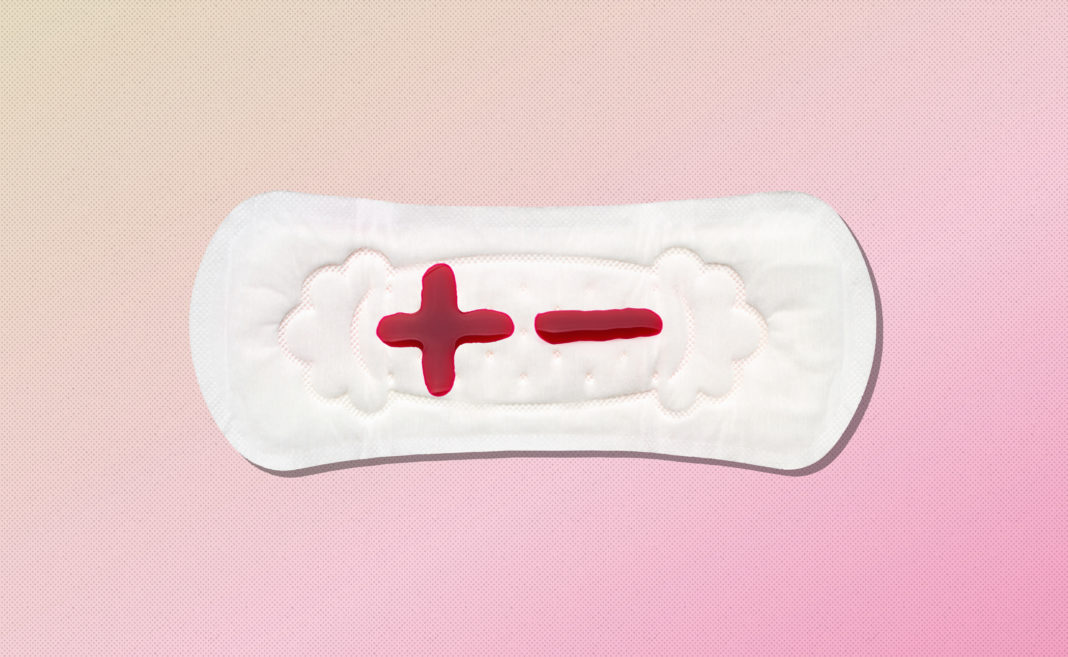
We're all in agreement that having a monthly period can be a total nuisance. And it goes without saying that's even more the case when you're trying to conceive. But the surprising thing that many women don't realize is that our period is actually a window into our fertility—helping us track our cycles, know (approximately) when we're most fertile, and providing clues as to our chances of getting pregnant.
Things like cycle length, how heavy your flow is, and how regularly you're getting your period are all affected by hormones in your body that regulate your cycle, help you get pregnant, and maintain a healthy pregnancy. So when hormone levels become off balance, sometimes due to underlying medical conditions, stress, or extreme changes in diet, there's a good chance your menstrual cycle will get thrown off.
Here, we've highlighted several common situations women face when it comes to their monthly cycle to help you know when to consult a doctor about how your period could be affecting your chances to conceive.
Missed Period
If you're trying to conceive, there's nothing worse than missing a period for the wrong reason. If your monthly visitor isn't showing up, well, monthly, and you're not seeing those two pink lines you're hoping for, it's a good idea to head to the doctor to get to the bottom of the issue. That's because an irregular cycle has a two-pronged effect on your fertility: First, it'll be much harder to pinpoint those key ovulation dates where getting pregnant is most likely. More importantly, repeatedly missing periods often indicates underlying issues that can affect your fertility; some are serious, while others are relatively simple to solve.
If you're wondering what can cause a missed period, outside of pregnancy, of course, there are a number of possible causes.
"PCOS is probably the best known cause of irregular cycles. Hypothyroidism can sometimes cause amenorrhea too, as can high prolactin levels, zinc deficiency, extreme dieting or weight loss, or very intense exercise," says Dr. Lauren DeVille, a naturopathic doctor at Nature Cure Family Health. Many of these causes can easily be fixed or reversed with the help of your OBGYN, who can in turn refer you to a fertility specialist if it becomes necessary.
Abnormal Flow
If you're getting your period every month, you're definitely ahead of the game when it comes to your chances of getting pregnant. However, if you're not seeing a positive pregnancy test month after a month despite a relatively predictable cycle length, your flow could provide a hint as to the cause. Abnormally heavy or light periods can sometimes mean there are issues that need to be solved before conception can occur, so read on to see if any of these might apply to you.
Heavy Period
At first glance, having an unusually heavy period may not seem like something that could affect your fertility, especially if your period is still regular. In reality though, it's not normal to have a super heavy period every month. Most of the underlying causes of very heavy periods are things that also lead to an inability to get pregnant or sustain a healthy pregnancy: things like uterine fibroids or polyps, endometriosis, pelvic inflammatory disease, or a hormone imbalance.
So how do you know if your heavy flow is too heavy? According to Dr. Jessica Shepherd, an OBGYN and U by Kotex founder, an extremely heavy menstrual flow is called menorrhagia, and is characterized by the following:
Light Period
In most cases, having a light period isn't anything to be too concerned about. If you've always had a pretty light period, or if it's always been on the short side, rejoice! This certainly shouldn't affect your chances of getting pregnant. But if your scanty flow is a sudden change that can't be explained by increased stress or dramatic weight loss, you may want to look into what's causing such a light period.
One of the biggest underlying medical issues when it comes to what causes a light period is polycystic ovarian syndrome, or PCOS, a condition where women produce higher than average male hormones. And you probably know by now that PCOS is one of the leading causes of infertility in women today. But the good news is, proper medical treatment to help keep hormones on track makes it possible for PCOS sufferers to have a healthy pregnancy and carry a baby to term.
Cycle Length
A picture-perfect cycle length is 28 days. But of course, we're all different, so there will always be some variation in cycle length. Often, one person's cycle can be off by a day or so, and that's just fine. But drastic differences in cycle lengths can signal issues like hormonal imbalance or other underlying medical issues that can affect fertility.
According to Shady Grove Fertility Clinic, "The length of your cycle, while not on any form of birth control, can be a key indicator to hormonal imbalances and whether or not ovulation is occurring in a regular manner. Hormonal imbalances can affect if and when ovulation occurs during your cycle."
Keep reading to learn what it can mean if you're experiencing abnormally long or short menstrual cycles.
Long Cycle
When you're trying to get pregnant, even a 30-day cycle can feel like an eternity, right? That's why there's nothing more punishing than an abnormally long cycle. Rest assured that occasional cycles that are longer than usual are pretty normal; minor things like travel, stress or even illness can delay your period by a few days or so. But if you're going on 45 days or more, or if longer-than-average cycles are becoming the norm for you, it's time to figure out what's going on. Long cycles can mean you aren't ovulating regularly. In fact, they're often indicative of an anovulatory cycle—that's a cycle where your body doesn't release an egg at all. As you can imagine, that can definitely put a kink in the baby-making process.
Many of the things that cause missed periods and other anomalies are the same things that cause super long cycles; hormone imbalance in the thyroid and adrenal glands, uterine polyps or fibroids, PCOS or obesity can all play a role.
Short Cycle
On the flip side, if you've noticed that you're getting your period more than once each month, there's a good chance your cycle length may be abnormally short. If you're thinking this equates to even more chances to try to conceive, sadly, that's not always the case. An abnormally short cycle can be an indication of, among other complications, a luteal phase defect.
"The luteal phase is the second half of the cycle, after ovulation. During this phase, progesterone rises to nourish the endometrium in case of implantation. It takes about 7 days after ovulation for implantation to occur, so a luteal phase shorter than this makes pregnancy unlikely. Ideally, you need the luteal phase to last around 14 days," says DeVille.
Other signs of a luteal phase defect include spotting and repeated early miscarriages. The solution often lies in fertility drugs like Clomid or progesterone suppositories, so if you are diagnosed with a luteal phase defect, know that it's a solvable problem and you'll likely have little trouble conceiving once it's corrected.
Spotting
Like all other oddities that can occur with your cycle, spotting is just something that can happen from time to time, especially during the first few years after your period starts and as you approach menopause. But if you're experiencing regular spotting before your period starts every month, or if you're having lots of breakthrough bleeding between cycles, your hormone levels may be slightly out of whack.
DeVille says, "spotting usually occurs when progesterone levels are too low to keep the endometrium in place. Or alternatively, if estrogen levels are too high." You could consider trying one of the new at-home hormone tests if you're having lots of spotting, then take the results to your doctor. They can review them and determine on the spot what type of treatment you might need to increase your chances of seeing that positive pregnancy test you've been waiting for.

































